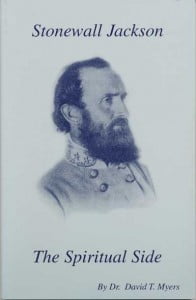One good name deserves another. Yesterday’s post concerned the Rev. Elihu Spencer. The name Elihu means “He is my God.”—a wonderful testimony to have embedded in your name! Today we look briefly at the ministry of Septimus Tustin [1804-1871], whose first name means “seventh.”
An Unusual Name No Hindrance to God’s Working
This writer has to acknowledge that I was curious regarding the name of this Presbyterian minister for this day of October 28, 1871. It was on this day that he went home to be with his Lord and Savior. His name was Septimus Tustin.
My first thought upon seeing that name “Septimus” was what parent would possibly bestow upon their son such a name. But then, I noted that his father’s name was ”Septimus,” so I understood that it was a case of “like father, like son.” He was the son of Septimus and Elizabeth Tustin, of Philadelphia, Pennsylvania, and his father died when he was quite young. Septimus was reared by his mother, and she is described as a pious woman and a member of the First Presbyterian Church in Philadelphia. With such a home and church like that, it is no great surprise that he went into the pastoral ministry. Ordained by the Presbytery of the District of Columbia (the first such from that new Presbytery), he began his pastoral ministry in Leesburg, Virginia in 1825.
Between the years of 1826 and 1861, he ministered to six more Presbyterian churches, five of them in the Northern states and one in the South. The latter was in Mississippi, and his time there came quickly to an end when that Southern state joined the Confederacy. After the Civil War, Rev. Tustin worked hard to unify the two sectional Presbyterian churches, but without success.
What is interesting about this minister is that on two occasions, he was called to the halls of Congress as a chaplain. First, he was the House of Representatives Chaplain for two years, and following up that ministry with the United States Senate Chaplaincy for five years. He also served as a trustee of Lafayette College, in Pennsylvania.
Rev. Tustin also figured in the negotiations and meetings which led up to the reunion of the Old School and New School Presbyterian General Assemblies in 1869. See his Report, using the link provided below.
Words to live by: What might be seen as a hindrance to effective work in God’s kingdom, as in this case a name, is proven to be the opposite when God’s Spirit is in control. Indeed, as Paul put it in 1 Corinthians 1:26-29, this is the norm rather than the exception. From the Amplified, it reads, “For [simply] consider your own call, brethren: not many [of you were considered to be] wise according to human estimates and standards, not many influential and powerful, not many of high and noble birth. [No] for God selected (deliberately chose) what is the world is foolish to put the wise to shame, and what the world calls weak to put the strong to shame. And God also selected (deliberately chose) what in the world is low-born and insignificant and branded and treated with contempt, even the things that are nothing, that He might depose and bring to nothing the things that are, So that no mortal man should [have pretense for glorying and] boast in the presence of God.”
For Further Reading:
Heaven, by Septimus Tustin.
The Olive Branch: The report of the Rev. Septimus Tustin, D. D., clerical delegate from the General assembly which held its session at Peoria, Ill., in May, 1863, to the General assembly which held its session at Philadelphia, Pa., in May, 1863, on the occasion of inaugurating a fraternal correspondence between those bodies
Grave of the Rev. Septimus Tustin.


